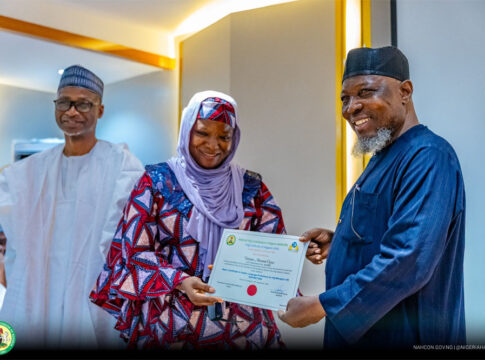The Hajj House Conference Room in Abuja was filled with quiet pride and hopeful promise as the Hajj Institute of Nigeria (HIN) celebrated the graduation of its pioneer class in Arabic Language Proficiency for Hajj Managers.
Delivering the welcome address, Rector Professor Muhamma Nasirudeen Maiturare described the ceremony as a landmark in Nigeria’s quest to revolutionize Hajj administration. “This program represents a significant milestone in our commitment to revolutionizing Hajj administration in Nigeria and Africa,” he declared, underscoring the Institute’s vision to make Arabic proficiency a cornerstone of pilgrimage management.
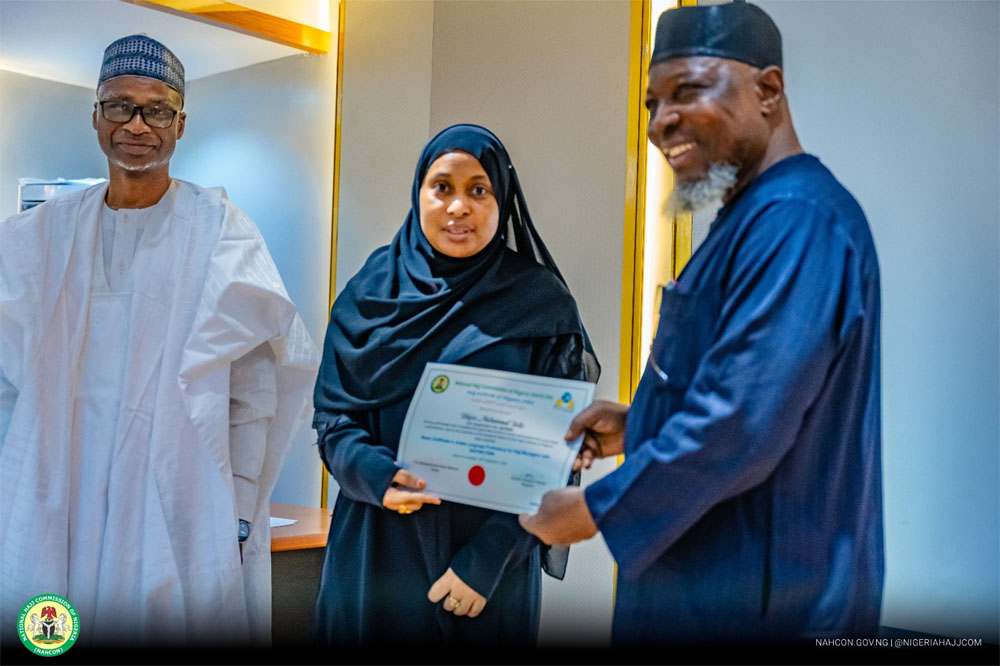
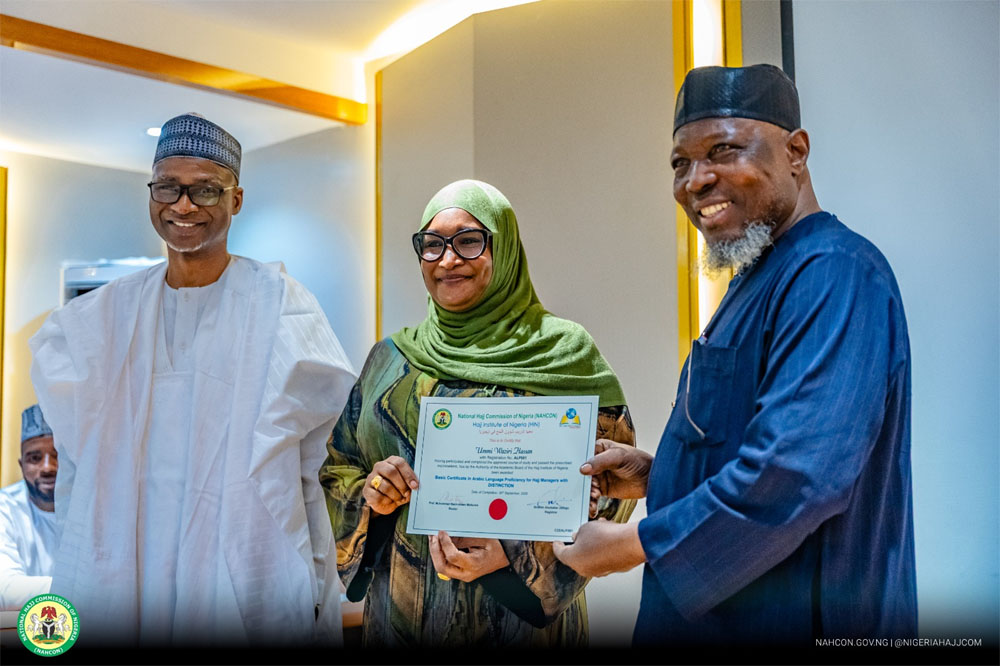
Language as a Tool of Excellence
Professor Maiturare emphasized that the ability to communicate in Arabic is not merely academic but a practical necessity for officials guiding pilgrims through the sacred journey. Quoting the Prophet Muhammad (peace be upon him), he reminded the audience:
“Allah loves that when any one of you undertakes a task, he does it with excellence.”
For the Rector, language is part of that excellence. Pilgrims, he noted, often travel with “trust in their hearts and a thousand small anxieties on their minds.” Clear communication in Arabic — the language of the Qur’an and of Saudi authorities — is essential to easing those anxieties and ensuring dignified service.
Strategic Partnerships for Global Standards
The Rector announced two major collaborations to strengthen the Institute’s Arabic program:
Umm Al-Qura University, Makkah: Plans are underway for joint modules, faculty exchanges, and immersion placements, allowing Nigerian trainees to study under seasoned Arabic specialists in Makkah.
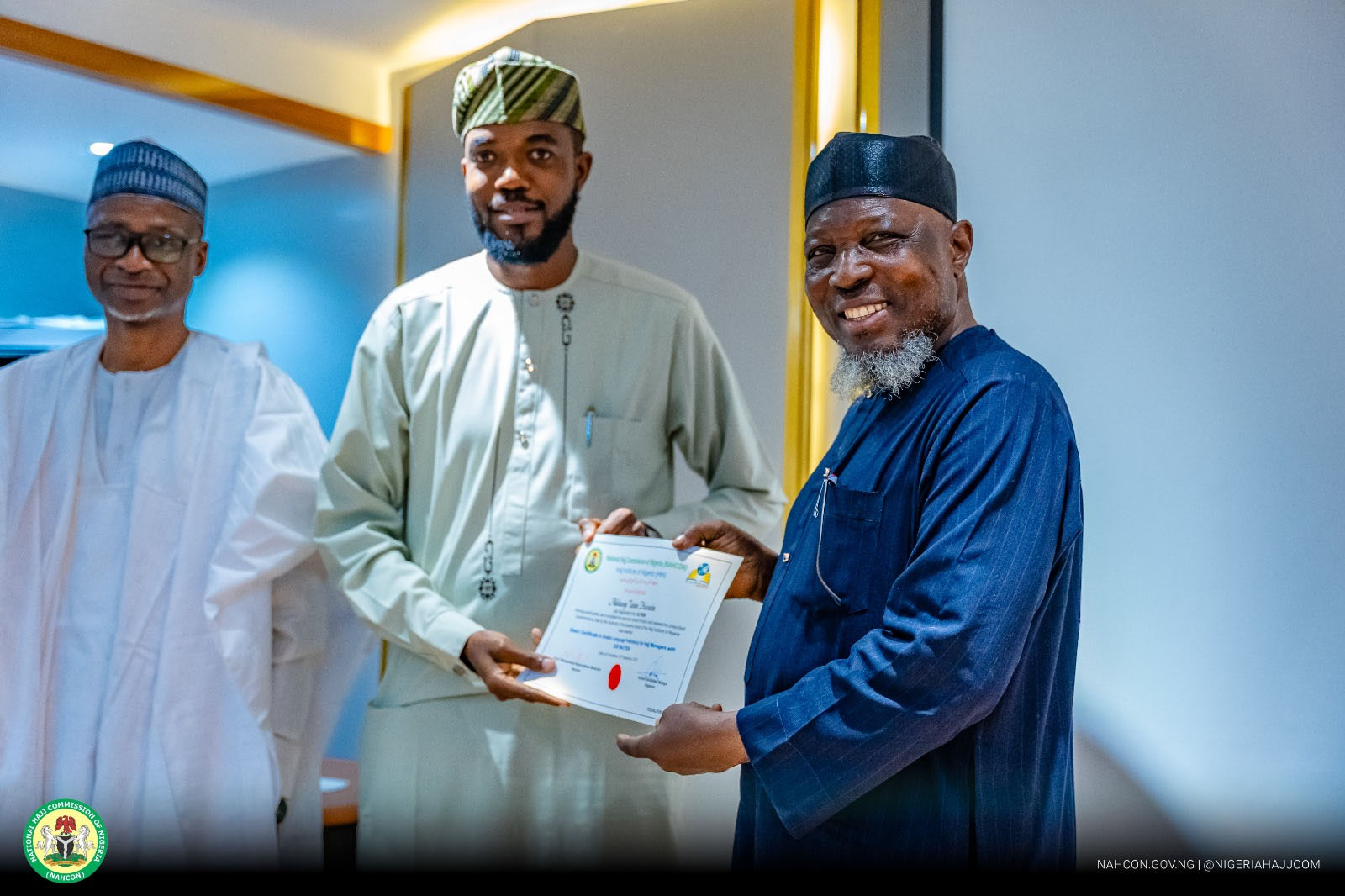
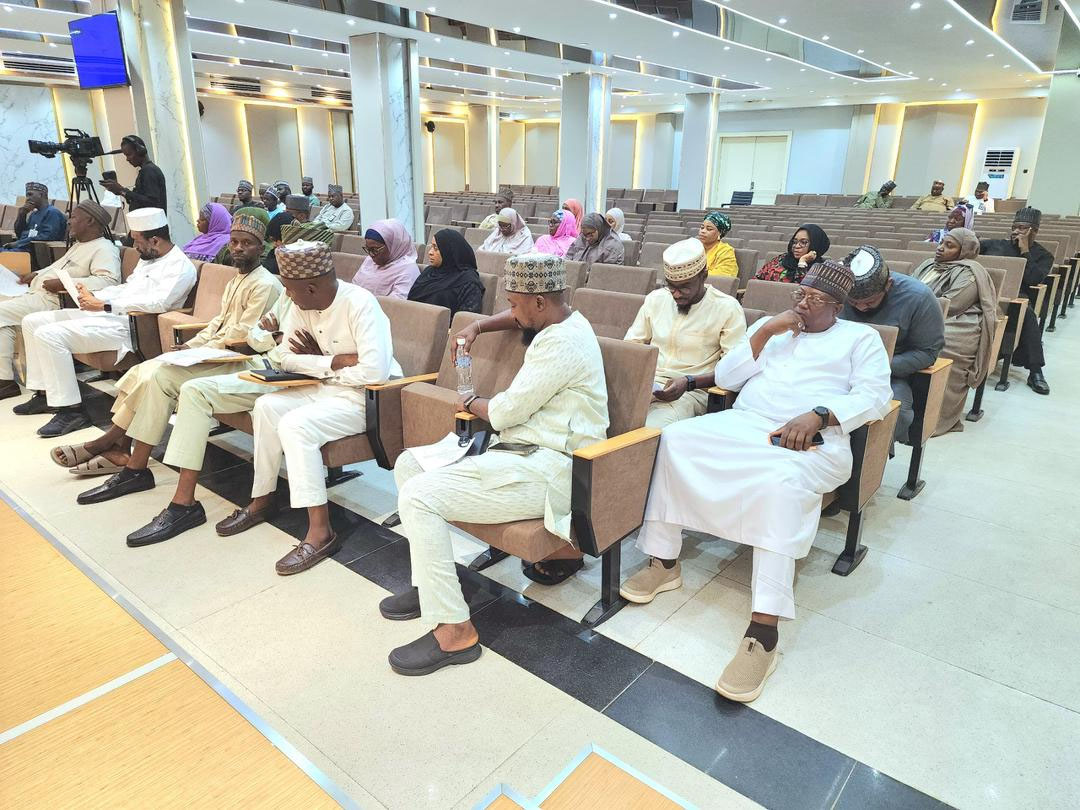
Rafid Al-Haramain Initiative: A partnership aimed at training 100,000 Hajj and Umrah service personnel in Saudi Arabia, with Nigerian participation envisioned as part of the broader capacity-building effort.
“These are not cosmetic affiliations,” Maiturare stressed. “We intend practical, verifiable steps: jointly validated certificates, immersion programmes, and continuing professional education credits for NAHCON staff and State Pilgrim Welfare Boards.”
Learning from Global Peers
The Rector highlighted that Nigeria is not alone in prioritizing linguistic readiness. Indonesia, for instance, integrates Arabic communication modules into its official manasik training for staff and pilgrims. This global trend, he argued, reflects a growing consensus that language proficiency is integral to effective Hajj administration.
Turning to the graduates, Maiturare urged them to make Arabic part of their public service identity:
“Every phrase you use in service, every explanation you give to a confused pilgrim, every calm instruction in a moment of tension will count as beneficial action.”
He also extended heartfelt gratitude to the faculty members, including Dr. Danbaba Haruna, Dr. Ali Usman Mani, Dr. Abbas Zakariyya Gumel, and several distinguished Sheikhs, whose dedication made the program possible.
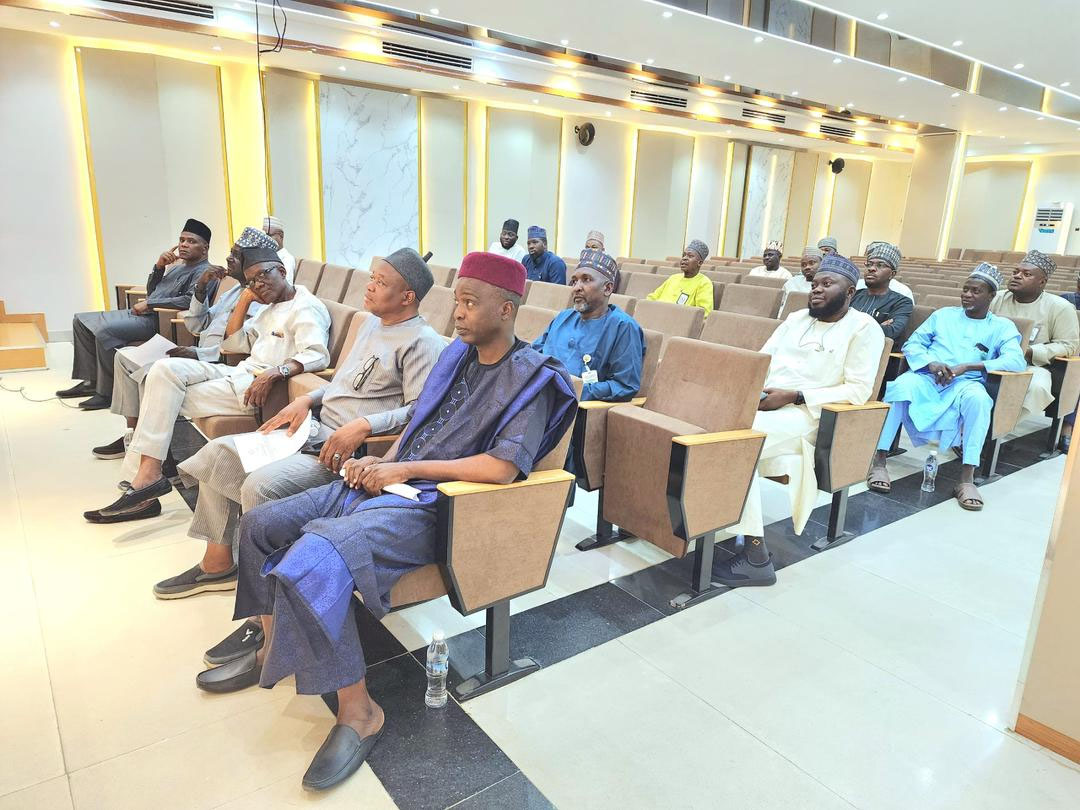
Positioning Nigeria’s Hajj Institute as a reference point
Professor Maiturare envisioned the Hajj Institute as a regional reference point where scholarship and practice converge. With institutional support from NAHCON, he believes HIN can grow into “a shining star in the global Hajj landscape, and a source of real pride for Nigeria.”
He concluded with a reminder of solidarity, quoting the Prophet Muhammad (peace be upon him):
“The believer to the believer is like a solid building; each part supports the other.”
The graduation of the first stream of Arabic Language Proficiency Course is more than a ceremonial milestone. It signals Nigeria’s determination to professionalize Hajj management, align with international best practices, and ensure that every pilgrim’s journey is guided with compassion, clarity, and excellence.
As the graduates step forward, they carry not just certificates but a mission: to serve pilgrims with words that comfort, instructions that guide, and a language that bridges faith and administration.












